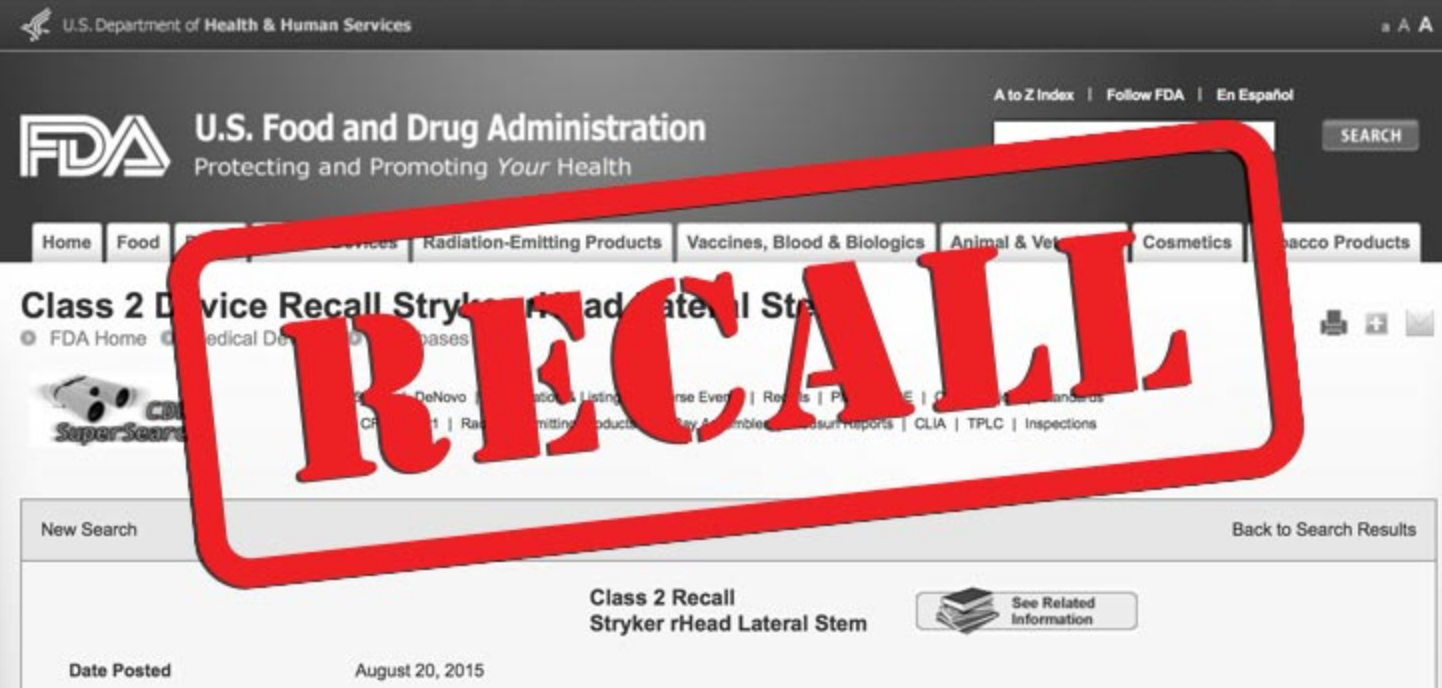Modern medical technology means that during some part of our lifetime we will all at some time or another become dependent on a medical drug or drugs and a number of medical devices. Generally, the older we are the more dependent on drugs and devices we are likely to become.
Medical drugs or devices are recalled when it is discovered that they are either unsafe or potentially unsafe. They may be recalled, checked, then redistributed or recalled, rectified and redistributed or recalled and destroyed after checking.
The role of the FDA in recalls
The recall may be by the manufacturer, the distributor or the Federal Food and Drug Administration (FDA) which is the federal agency that would have given permission for the use of the drug or medical device in the first place.
Generally, if the FDA has issued a recall it will work with the manufacturer and distributor first. It may issue a request for all recalled items to be located and sent away wherever they are.
A health problem that results from an unsafe drug or device may lead to a personal injury lawsuit against the manufacturer, the distributor or the medical institution and its personnel that supplied it or some combination of all of these.
Talk to a personal injury attorney if you suspect health problems as a result of a defective medical drug or device
In the event that you have a loved one who has become ill through use of a defective drug, or has been discovered to have a defective device that has been used or implanted in them, then you should contact a medical malpractice attorney at the Keith Williams Law Group in Nashville, Tennessee. If your relative needs to have surgery to replace or remove a defective device which may have been recalled, this could prove very expensive without compensation.
Categories of drug recalls
Drug recalls are categorized by their level of severity. The least serious is a class III recall. Drugs in this category are not thought to cause a health problem if administered despite potential defects.
A class II drug recall involves a drug that might cause a temporary or reversible problem. The chance of this happening with a drug of this type is relatively low.
The most serious drug recalls are class I recalls. The chance that these drugs may cause serious harm or death is relatively high.
Some examples of current medical drug and / or device recalled by request from the FDA include:
- The Stryker Hip Implant;
- The St. Jude Heart Defibrillator Riata Lead Recall;
- Pravastatin Sodium tablets;
- Ibuprofen Lysine Injection.
Johnson & Johnson and reluctance to recall baby powder
Not every private company that is aware of potentially dangerous defects in their products is keen to recall that product without pressure. A number of lawsuits are going through the court at the moment in the U.S. against Johnson & Johnson, alleging that there is a link between their baby powder and ovarian cancer. Johnson & Johnson have refuted the medical evidence and have used their own research to suggest that there is no link between their product and ovarian cancer. They have refused to recall baby powder or any similar talcum powder. The FDA has not yet reached the stage where a recall has been requested, making the legal battle against J & J on the behalf of women who have allegedly suffered from ovarian cancer as a result of using the company’s powder over a long period of time.
Time will only tell whether J & J’s strategy will backfire on them and whether they will be faced with a potentially catastrophic compensation settlement. If you or a loved one have been a user of Johnson & Johnson baby powder and have been diagnosed with ovarian cancer, contact Keith Williams Law Group today.


Leave A Comment